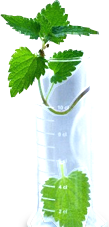



Author(s): K. Akilandeswari*, V. Sona
Pesticides and insecticides are substances or mixture of substances, intended for preventing, destroying, repelling or mitigating pests and insects, mainly in the agricultural field. However, it causes several health hazards and environmental impacts. Hence it is crucial to degrade the pesticides to prevent the harmful effects on environment as well as human health. Among the various methods used for the degradation of pesticides, biodegradation is the most widely used. The aim of the present study was to analyse the efficiency of the strain Staphylococcus aureus in the degradation of the organophosphorous pesticide Malathion. This was carried out both in minimal medium containing pesticide and in artificially contaminated soil sample. The samples were subjected to degradation for ten days. In the minimal medium, the percentage degradation was around 59.76 %. In the soil, the percentage degradation was around 50 % for Malathion. Hence the pesticide was effectively degraded by Staphylococcus aureus species proving the efficiency of biodegradation in the removal of pesticides.